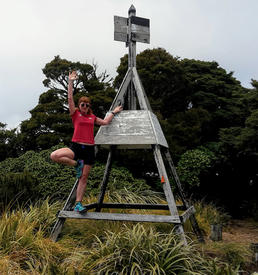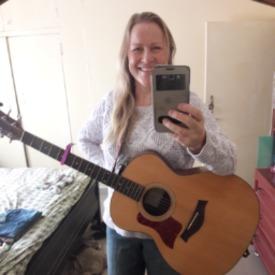Not loosing weight again

Blezzed888
Posts: 19 Member
After a 20 pd loss, I am no longer loosing any more weight despite my efforts! What can I be doing wrong?
0
Replies
-
How long is it since you last lost weight?0
-
This. And are you counting calories?poisonedcandi wrote: »How long is it since you last lost weight?
0 -
@poisonedcandi 2 months ago0
-
This content has been removed.
-
@malibu927 I am counting calories and @YepItsKriss I've adjusted my caloric goal as well.1
-
But are you weighing your food or estimating?1
-
@Nony_Mouse I weigh my food at times, but mostly I estimate the weight of my food.0
-
Time to tighten up your logging then. Weighing all solid food is a good place to start.5
-
Start weighing your food, and measuring liquids. Log everything, and check to ensure you are using accurate database entries. Until you are sure that you are eating at a deficit, there's nothing else we can suggest.2
-
Weigh solid food in grams. Use a calculator to get the proportions right if the database entry is a different weight to what you're eating.
1 -
Blezzed888 wrote: »@malibu927 I am counting calories and @YepItsKriss I've adjusted my caloric goal as well.
so you are not weighing food - as others said - start there.0 -
1. If you aren't already, be sure that you're logging everything. Sometimes people forget about things like veggies, drinks, cooking oils, and condiments. For some people these can add up to enough to halt your weight loss progress.
2. Consider buying a food scale if you don't already have one. They're about $10-$20 dollars in the US and easily found at places like Amazon, Target, and Walmart. Measuring cups and spoons are great, but they do come with some degree of inaccuracy. A food scale will be more accurate, and for some people it makes a big difference.
3. Logging accurately also means choosing accurate entries in the database. There are a lot of user-entered entries that are off. Double-check that you're using good entries and/or using the recipe builder instead of someone else's homemade entries.
4. Recalculate your goals if you haven't lately. As you lose weight your body requires fewer calories to run. Be sure you update your goals every ten pounds or so.
5. If you're eating back your exercise calories and you're relying on gym machine readouts or MFP's estimates, it might be best to eat back just 50-75% of those. Certain activities tend to be overestimated. If you're using an HRM or activity tracker, it might be a good idea to look into their accuracy and be sure that yours is calibrated properly.
6. If you're taking any cheat days that go over your calorie limits, it might be best to cut them out for a few weeks and see what happens. Some people go way over their calorie needs without realizing it when they don't track.
7. If you weigh yourself frequently, consider using a program like trendweight to even out the fluctuations. You could be losing weight but just don't see it because of the daily ups and downs. You might also be sure your scale is working and doesn't need new batteries or anything.
8. Some people just burn fewer calories than the calculators predict. If you continue to have problems after 4-6 weeks, then it might be worth a trip to the doctor or a registered dietitian who can give you more specific advice.2 -
This content has been removed.
-
If you estimate, estimate 1/4th more on everything. And I second the "Diannethegeek".. especially in not forgetting the small things like cooking in 2tbs of oil.1
-
An estimate is a guesstimate, it just doesn't work.Blezzed888 wrote: »@Nony_Mouse I weigh my food at times, but mostly I estimate the weight of my food.
2 -
A lot of people start out by weighing everything, then they ease up a bit. In the beginning, eyeballing portions presents no problem, but over time that "portion creep" sets in, and what you thought was 3 ounces of steak is really 5 or 6 ounces.
Weigh solids on a food scale, and measure liquids in measuring cups.2 -
I was where you are, for a few months. Recently I lost a couple more pounds, FINALLY, which was weird because we were traveling and I was not really logging accurately, sometimes not completing my diary, and not able to exercise normally.
Here is what I think, based on the last year of ups and downs and losing 28 lbs and slowing down in those last 10.- Don't over-deficit calories. In my case, if I try to live on 1200 calories a day, nothing happens except that I'm hungry all the time. Less than that, and my metabolism shuts down (as in I am tired as heck and I stop pooping!). If I eat close to or even slightly over my 1390 calorie goal, I continue to chip away at those last 10 lbs, albeit slower than I would wish. But progress is progress!
- Eat in such a way as you can maintain for the rest of your life.
- Do invest in a scale because it gives you a realistic perspective on how many calories that scoop of mashed potatoes REALLY has. You don't have to use it every time, but it gives a reality check from time to time.
- Keep exercising, and maybe you have to change up your exercise routine to burn more calories without eating less.
- Don't lose heart! Keep it up!
2 -
This content has been removed.
This discussion has been closed.
Categories
- All Categories
- 1.4M Health, Wellness and Goals
- 395.7K Introduce Yourself
- 44.1K Getting Started
- 260.7K Health and Weight Loss
- 176.3K Food and Nutrition
- 47.5K Recipes
- 232.8K Fitness and Exercise
- 449 Sleep, Mindfulness and Overall Wellness
- 6.5K Goal: Maintaining Weight
- 8.6K Goal: Gaining Weight and Body Building
- 153.2K Motivation and Support
- 8.2K Challenges
- 1.3K Debate Club
- 96.4K Chit-Chat
- 2.5K Fun and Games
- 4.3K MyFitnessPal Information
- 16 News and Announcements
- 17 MyFitnessPal Academy
- 1.4K Feature Suggestions and Ideas
- 3K MyFitnessPal Tech Support Questions










